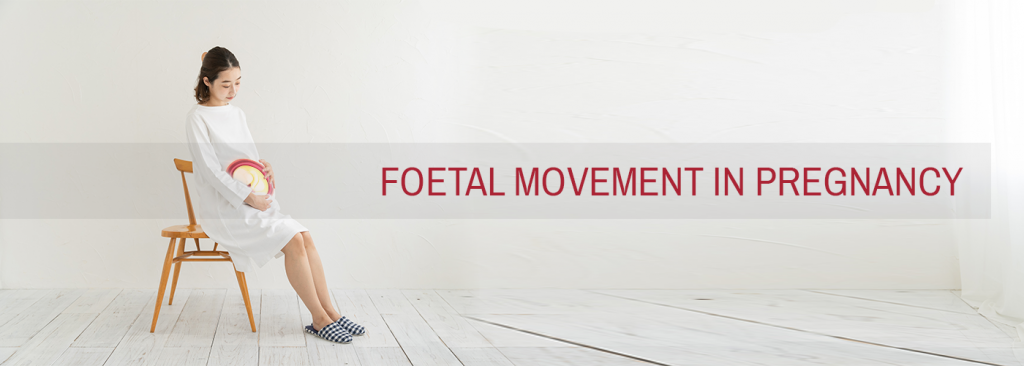Read Now
Getting your Trinity Audio player ready... |
During your pregnancy you will gradually and incrementally feel your baby’s movements. This is a very exciting time as it reassures you that your baby is developing well and also helps you feel close to your baby. In this article, we’ll talk about your baby’s movements during your pregnancy.
Your baby’s first movements are called “quickening”. You should feel your baby’s first movements between the 16th and 25th weeks of your pregnancy. This is when baby movements start in pregnancy. If you are experiencing your second pregnancy you can even feel your baby’s first movements as early as the 13th week. Your baby is more likely to move when you are either sitting or lying down.
So what do these movements feel like? Well, most pregnant women describe these as a tumbling motion, butterflies, or nervous twitches. If this is your first pregnancy, it may be hard to tell if your baby has moved. Experienced mothers are more adept at distinguishing their baby’s movements from hunger pangs, gas, and other internal motions. However, by the second or third trimester, it will be easier for you to tell if your baby is moving and you will also be able to feel your baby’s jabs, elbows, and kicks.
Why are baby movements important?
Baby movements are very important because they are a sign that your baby is well. Initially, you will only feel a few flutters now and then. However, by the end of the second trimester, your baby’s kicks will become stronger and more frequent. By the third trimester, your baby will move about 10 times an hour.
Your baby oscillates between alertness and sleep and so, will tend to move more at certain times of the day. They are usually more active at night, between 9 pm and 1 am, right around the time that you are trying to sleep. Your changing blood sugar levels also affect this activity. Your baby will also respond to sounds or touch.
Your baby’s movements will be well established by the 28th week. Doctors recommend that you keep track of your baby’s movements to ensure that your baby is developing the way they should. Assessing foetal movement during pregnancy is very important. This is known as foetal movement assessment, foetal kick movement, or foetal movement counting. Before you do this, you should consult with your doctor for guidelines and advice.
Timeline of your baby’s movements
Here is a snapshot of your baby’s movements. This is a rough guide of when we feel baby movement in pregnancy:
- Week 12: Your baby will start to move but you may not feel anything as your baby is too small.
- Week 16: You may start to feel tiny butterfly-like flutters. Initially, you may not be able to distinguish this from gas.
- Week 20: You may really start to feel your baby’s movements, called “quickening”.
- Week 24: Your baby’s movements will become more established. You may also feel slight twitches.
- Week 28: Your baby will move more often and their jabs and kicks can literally take your breath away.
- Week 36: Your uterus is getting crowded as your baby grows and so, your baby’s movements could slow down a bit. You should, however, feel consistent movement during the day.
When can you feel your baby move more?
Your baby may be more active at certain times of the day or night. Some of these are:
- You have settled down for the night: During the day, your body motion may lull your baby to sleep. Also, during the day, you are busy doing other things, so you may not notice your baby’s movements all that much. During the night, as you are trying to sleep and are relaxed, you are more likely to notice what your baby is up to and will notice the movements much more.
- After you have a snack: The surge in your blood sugar may give your baby a rush of energy, thereby resulting in increasing movements.
- When you are nervous: During this time, your body releases adrenaline, which also gives your baby a rush of energy, resulting in increased movements.
Foetal movements during pregnancy are extremely important and it is equally important to consult with the right obstetrician during your pregnancy, who will help you understand how and why these movements occur. If you think your baby’s movements are not the way they should be it is imperative that you consult your obstetrician immediately.
You can consult with an extremely skilful and empathetic obstetrician at Harsha Hospitals, in Hyderabad, India. We not only have the best doctors we also provide a holistic practice, wherein we are there for our patients from before their conception, through their pregnancy, right through the delivery, and after the baby is born.
We educate our patients as to the occurrence of foetal movements during their pregnancy and patiently answer any and all questions that they may have. So, if you are pregnant and need to consult with a compassionate and skilful obstetrician, look no further than Harsha Hospitals and ensure that you have a healthy pregnancy and a healthy baby!
For more information about foetal movements during pregnancy and other women’s issues consult Harsha Hospitals at +91 7799565793 or at info@harshahospitals.co.in or go to our website for more information.



